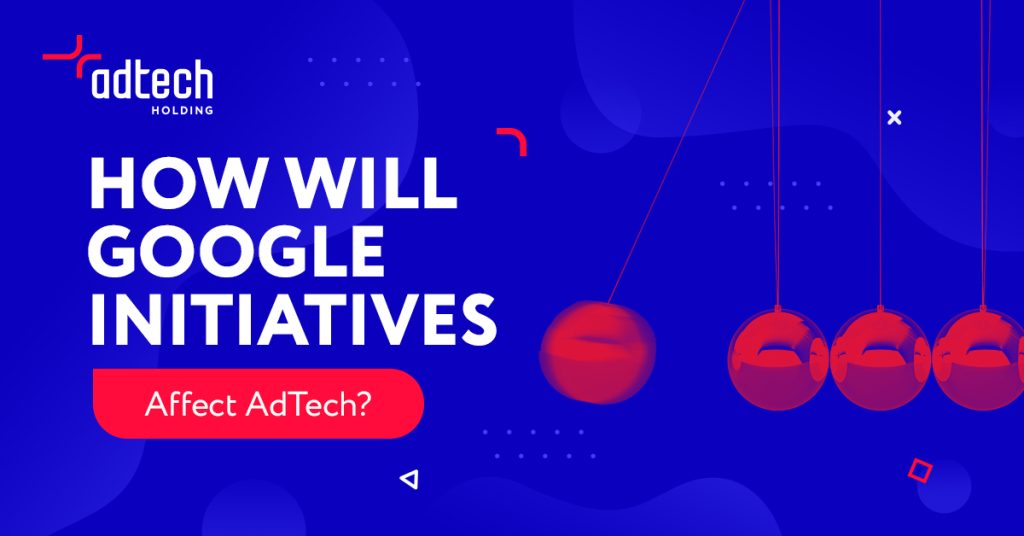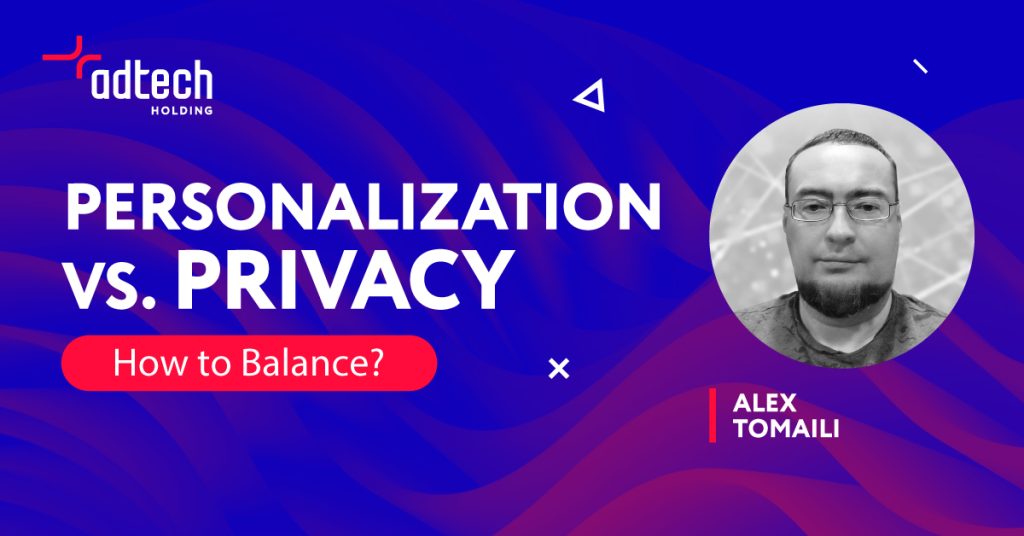Will Google Privacy Sandbox Affect Retargeting: What Do AdTech Specialists Think?

In the last several years, Google has introduced a vast number of novel privacy initiatives aimed at decreasing ad personalization to enhance the confidentiality of user experience on the Internet. The ban on third-party cookies has probably become the top popular topic discussed among AdTech specialists, but, on the other hand, the final step that will ultimately end the cookie era of the Internet has yet to be made.
Overall, there is no preciseness yet regarding the future of programmatic advertising: it remains vague. AdTech Holding experts keep their fingers on the pulse to take immediate action in case there is a need for new approaches, and we regularly share our forecasts and opinions.
Today, we will speak about Google Privacy Sandbox, the technology that is supposed to change the way digital advertising is today.
What Is Google Privacy Sandbox?
Google Privacy Sandbox is a set of initiatives aiming to boost the privacy of users’ Internet experience. All of these initiatives can be conditionally divided into two parts.
The first part is supposed to interfere with user tracking and make it harder to identify individuals and their activities. Subsequently, this will imply cutting many targeting and retargeting opportunities and the need to provide advertisers with alternative solutions.
As a result, the second part of the initiative set is exactly the novel targeting features.
In this article, we will give a detailed look into the two Privacy Sandbox tools designed to replace the existing targeting methods after the third-party cookies ban.
Topics API
Today, we can still track the users across all the websites they visit. Third-party cookies give advertisers access to a large dataset of activities: information on where they click, how they convert, and interact with ads.
Topics API suggests tracking these activities without access to such a large amount of data and using a publicly accessible glossary of topics called Taxonomy.
In a nutshell, this is a list of topics and subtopics that reflect the interests of users:
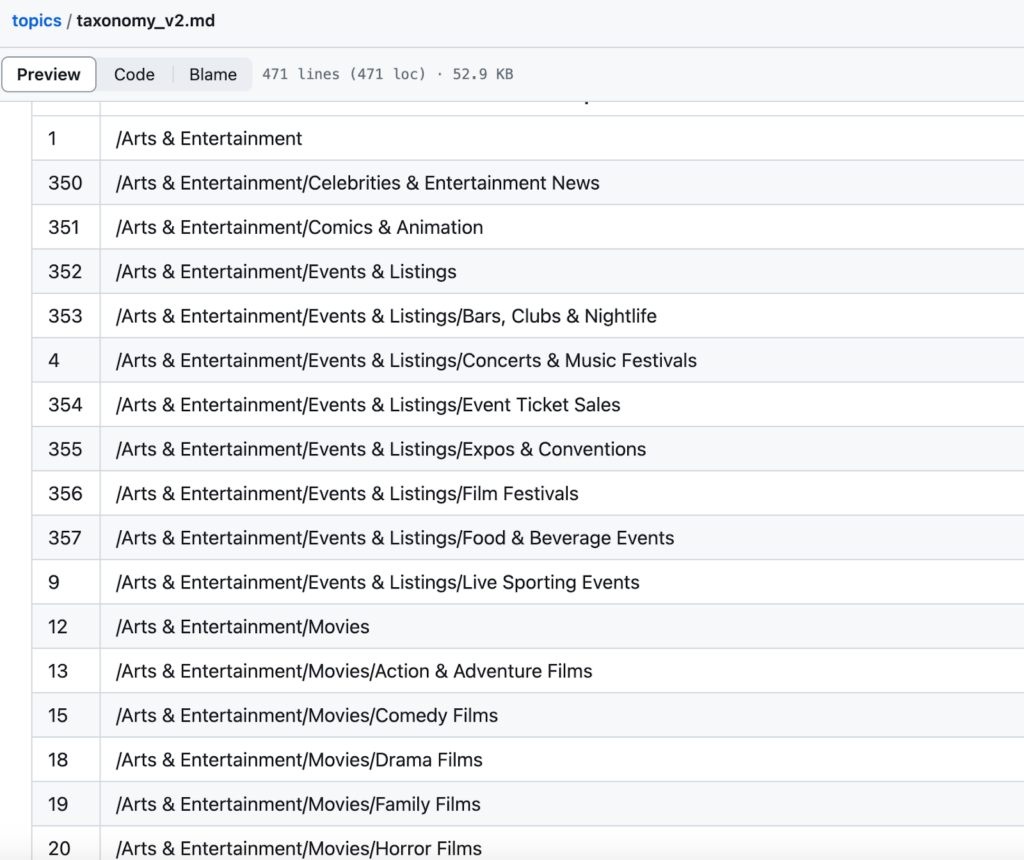
This list is limited and moderated by Google. The point of the feature is that a browser will assign every user particular interests based on the websites they visit and then show ads related to these interests.
Here is how it works:
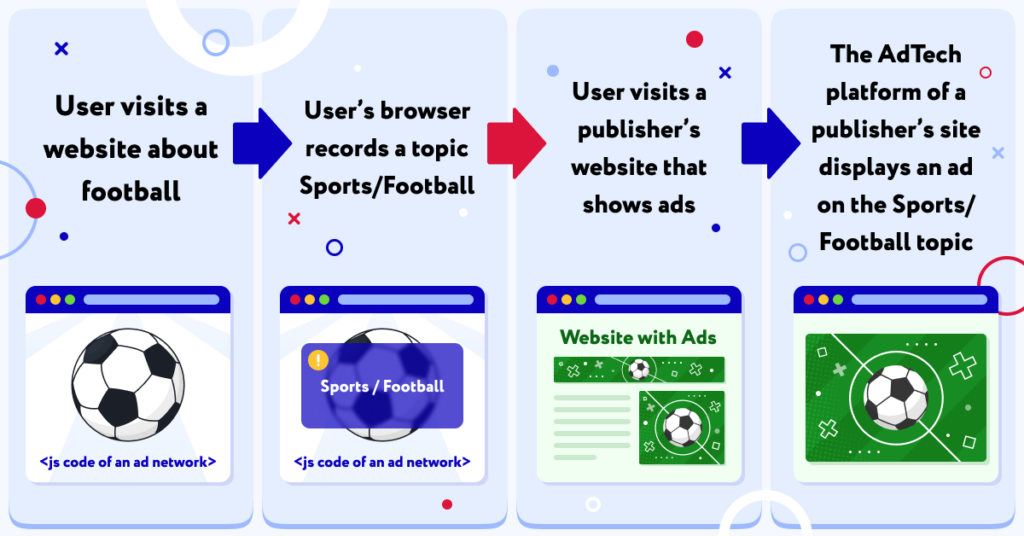
The main advantages of Topics API from the user privacy point of view are the following:
- The browser reserves the right to allow inaccuracies when sending data about interests to the AdTech platform, which makes it even harder to track users.
- All the information is stored in the user’s browser, so advertisers do not have any access to user data.
Protected Audience API
A similar technology is applied to another feature called the Protected Audience API. The main difference is that Topics API does not allow advertisers to indicate a particular audience for a user, while the Protected Audience provides them with this extended access.
This allows a browser to initiate advertising auctions right on the user’s device, selecting ad units to show without sending any customer data to the publisher’s website servers.
Here is the essence of how this technology works:
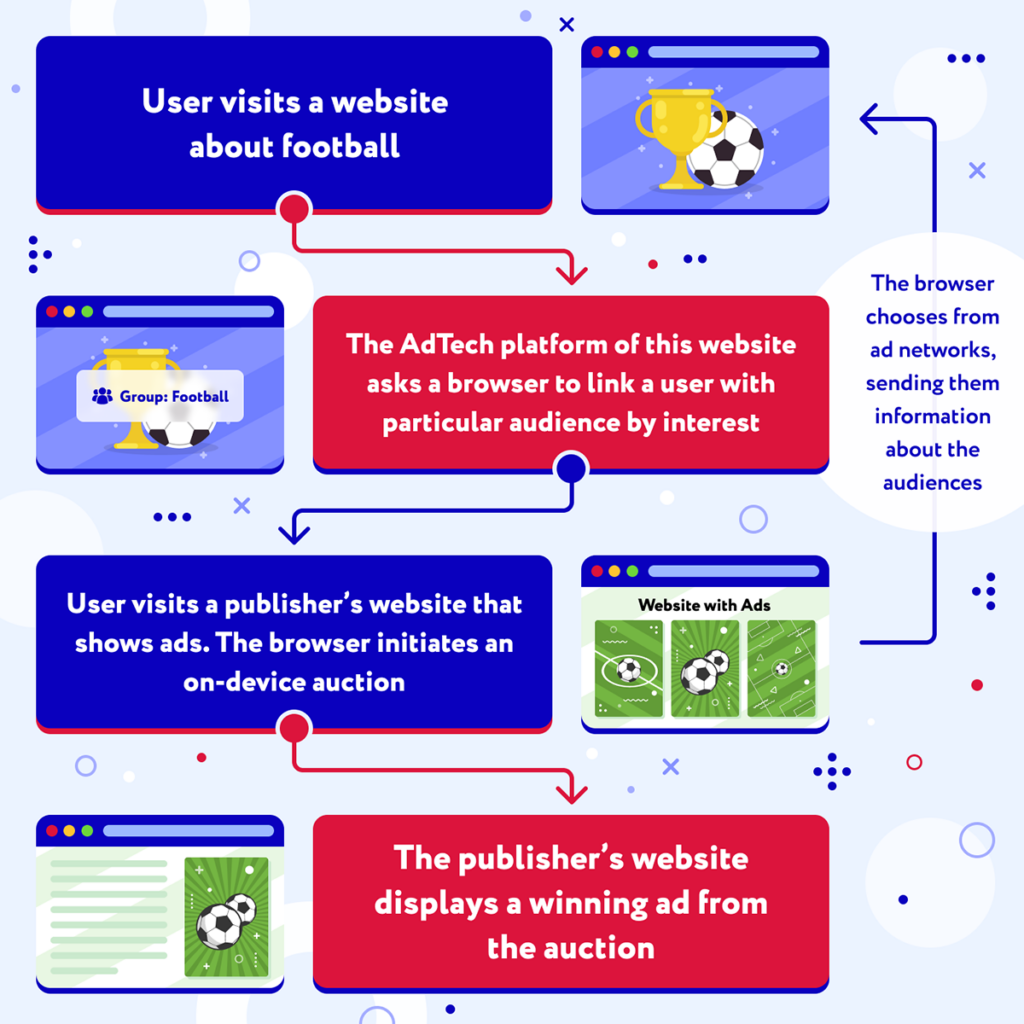
How Will Privacy Sandbox Affect AdTech?
The new approach suggested by Topics API and Protected Audience API will definitely boost user privacy and hinder the tracking process. As Alex Tomaili, the Chief Technology Officer at PropellerAds, puts it,
Reputable ad networks, of course, behave responsibly towards user data. However, not all ad networks are like this, and, what is more, not only ad networks can obtain, store, and use data! While people have always had an opportunity to prohibit all sorts of cookies for their browsers, an average user does not even think about it to consider extra settings as an option. Thus, this average user will end up being more protected by Privacy Sandbox.
While the user’s benefits are evident, advertisers have serious concerns about the future of targeting, retargeting, and the overall balance between user privacy and ad personalization. In Alex’s opinion, the new approach towards auctions and user audiences might result in serious consequences for many networks, as they will not have access to enough amount of user data anymore.
In my opinion, Privacy Sandbox mainly aims at Tier-1 and Tier-2 traffic. Its tools seem to be genuinely efficient for big brand websites, with domain names that completely reflect the website’s topic and allow for easy detection of user interests. However, it is not the most convenient solution for Tier-3 networks.
On the other hand, there are plenty of alternative options and opportunities to adapt the new technologies to the Tier-3 traffic, and we are constantly researching these opportunities to find out the most appropriate ones.’
As a result, the Privacy Sandbox initiative can not be considered an ultimate solution for everyone, and this is reflected in a range of complaints and uncertainties from advertisers. It is unlikely that the third-party cookies will be phased out, and the whole advertising industry will be altered forever without a final consensus between the biggest market players.
Summary
As several AdTech Holding partners we asked agreed, it is hard to give precise predictions on the future of programmatic advertising that is held for us by Privacy Sandbox. As one advertiser said it,
I can not give any forecasts. In my opinion, when the update of the whole system becomes clearly inevitable, and only a couple of months will be left before the third-party cookies phase out, all specialists working with ads will need to install Chrome Beta and Canary versions to test the novel approaches.
Despite all concerns, the update does not seem to be the end of targeting and efficient advertising. Not all ad networks rely on tracking and third-party cookies, and the need to switch to different solutions will not result in a catastrophe.
We will keep monitoring the updates of Privacy Sandbox and other Google initiatives and ensure that solutions are delivered according to the changes the advertising market is going through.
